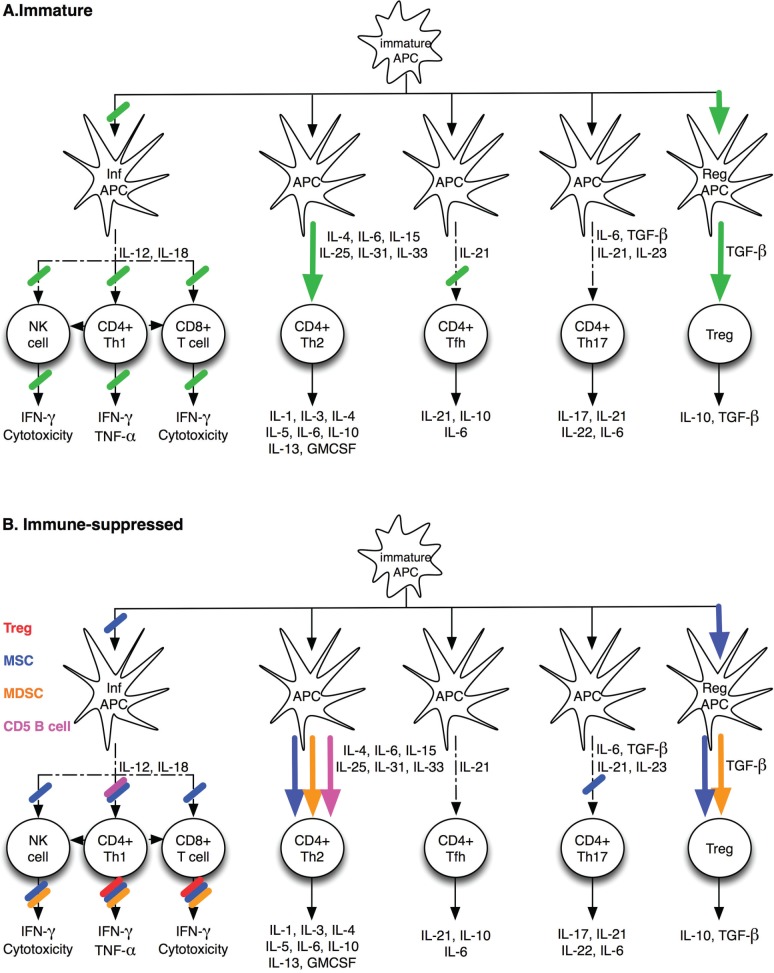Figure 1.
Known characteristics of the infant’s immune responses. A. Immaturity of the infant’s immune system is dictated by the inability of inflammatory dendritic cells (inf APC) to produce IL-12 and IL-18. This leads to an impaired CD8+ T cell, NK cell and Th1 responses upon stimulation. The T-helper response is skewed toward Th2. The decreased ability of inf APC to effectively prime T helper responses leads to a decreased ability to provide the needed help for strong T dependent B cell responses. B. Possible involvement of specific regulatory cells in shaping the infant’s immune response described in A. Regulatory T cells (Tregs) suppress T cell proliferation and IFN-g secretion. CD5+ B cells decrease IL-12 production by inflammatory dendritic cells and skew the T helper response towards a Th2 phenotype. Myeloid derived suppressor cells (MDSC) suppress T cell proliferative responses, decrease IL-5, IL-17, and IFN-g production, and skew the T cell phenotype towards Th2. MDSC also inhibit IFN-g production by NK cells. Mesenchymal Stromal Cells (MSC) skew the dendritic cell differentiation towards a regulatory phenotype and induce MDSC. This induces the generation of Tregs from Th1 and Th17 cells. MSC induce T cell anergy and suppress NK cell proliferation, cytotoxicity and cytokine production.

